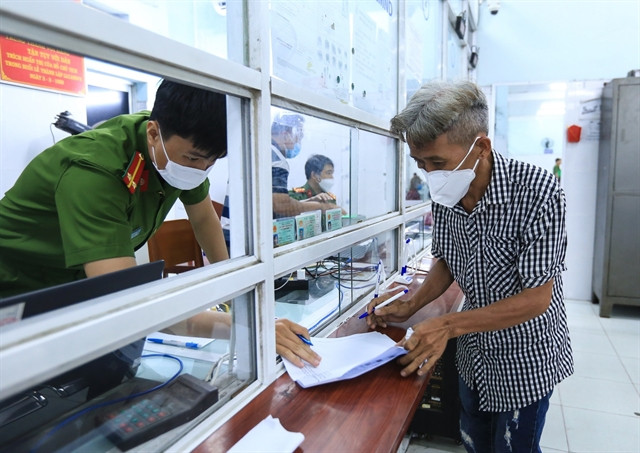 |
| A citizen fills some forms to register for temporary residence. — Photo thanhnienviet.vn |
The Vietnamese Government has introduced a new regulation requiring parents to register the permanent residence of their newborns within 60 days of birth.
The new rule is part of the recently enacted Decree 154/2024, which, effective from January 10, 2025, dedicates a specific article to the registration of permanent and temporary residence for minors.
Under the decree, parents or guardians have a maximum of 60 days from the date of birth to complete the residence registration process for their children.
While children can be registered at their parents' or guardians' permanent or temporary residence, the new regulations clarify that children can also be registered at their parents' permanent residence even if the parents are not living there.
The 60-day deadline for child residence registration marks a return to a previous policy that was in place before the enactment of Decree 62/2021. This earlier regulation required parents to register their children's residence within 60 days of birth, but this requirement was later removed.
Failure to comply with the new residence registration requirements can result in administrative penalties, including fines ranging from VNĐ500,000 to VNĐ1,000,000 (approximately US$20-$40).
Under the rule, Vietnamese citizens must provide a more comprehensive set of documents to prove their lawful residence.
For permanent residence registration, individuals are required to present one of the following: a land use right certificate, a real estate ownership certificate, a construction permit, a home purchase contract or proof of home handover and notarised rental, loan or accommodation agreements.
For temporary residence registration, similar documentation is required, with the exception of rental, loan or accommodation agreements, which no longer need to be notarised.
A notable feature of the new regulations is the emphasis on digital verification. When individuals submit their residence registration applications, authorities are obligated to cross-reference the provided information with the data stored in the citizen's electronic identity card and digital identification account.
This digital verification process is designed to streamline the registration process and reduce the risk of fraudulent applications. Only when the necessary information cannot be found in existing digital databases, will authorities require additional physical documentation. — VNS